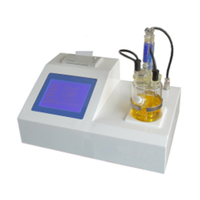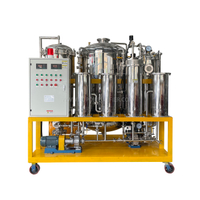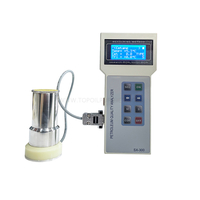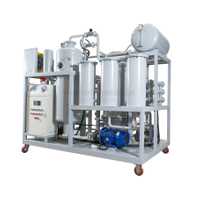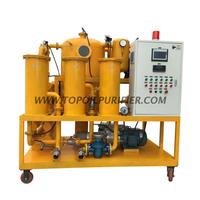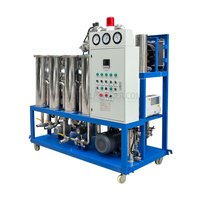Transformer oil degasification is a crucial process in workshops that deal with transformers. The importance of using degasifiers for this purpose cannot be overstated. In this article, we will delve into the various benefits of transformer oil degasification and explore the significant role that degasifiers play in workshop environments.
One of the key advantages of transformer oil degasification is its ability to remove dissolved gases from the oil. Over time, transformer oil tends to accumulate gases such as oxygen, nitrogen, and carbon dioxide. These gases can lead to various issues, including reduced dielectric strength, increased oxidation, and accelerated aging of the transformer. By utilizing degasification techniques, these harmful gases can be effectively eliminated, ensuring optimal performance and longevity of the transformer.
Degasifiers play a crucial role in the workshop setting by facilitating the degasification process. These devices are specifically designed to extract dissolved gases from the transformer oil, ensuring that it remains clean and free from contaminants. Degasifiers employ advanced technologies such as vacuum dehydration and thermal oxidation to efficiently remove gases, moisture, and impurities from the oil. This helps in improving the overall dielectric strength of the oil, enhancing its insulating properties, and preventing electrical breakdown within the transformer.
In conclusion, the importance of using degasifiers for transformer oil degasification in workshops cannot be emphasized enough. The benefits of this process in terms of maintaining the health and performance of transformers are significant. By investing in high-quality degasifiers and incorporating them into workshop practices, businesses can ensure the reliability and longevity of their transformers, ultimately leading to cost savings and uninterrupted operations.
Benefits of Transformer Oil Degasification
Transformer oil degasification is a crucial process in the maintenance and longevity of electrical transformers. This method involves removing the dissolved gases and moisture from the transformer oil, ensuring its optimal performance and preventing damage to the equipment. The benefits of transformer oil degasification are numerous and contribute to the smooth functioning of transformers in power distribution systems.
One of the primary advantages of transformer oil degasification is the enhancement of the dielectric strength of the oil. Over time, contaminants such as water, gases, and particles can accumulate in the oil, reducing its insulating properties. This can lead to electrical breakdowns and failures in the transformer. By removing these contaminants through degasification, the dielectric strength of the oil is improved, minimizing the risk of electrical faults and ensuring the safe and uninterrupted operation of the transformer.
Furthermore, transformer oil degasification helps to extend the lifespan of the transformer. The presence of moisture and gases in the oil can lead to the formation of sludge and deposits, which can degrade the insulation system and cause overheating. Over time, this can result in the breakdown of the transformer and the need for costly repairs or replacements. Regular degasification of the transformer oil eliminates these harmful elements, reducing the risk of degradation and prolonging the life of the equipment.
Another significant benefit of transformer oil degasification is the reduction of maintenance costs. By maintaining the purity and quality of the oil, the need for frequent oil changes and replacements is minimized. This not only saves money but also reduces the downtime associated with maintenance activities. Additionally, cleaner oil improves the efficiency of the transformer, leading to lower energy consumption and decreased operational costs.
Transformer oil degasification also plays a crucial role in ensuring the reliability and stability of the power distribution system. With clean and purified oil, the risk of transformer failures and outages is significantly reduced. This is particularly important in critical industries and sectors where uninterrupted power supply is essential, such as hospitals, data centers, and manufacturing plants. By investing in regular degasification of transformer oil, companies can avoid costly disruptions and maintain a reliable power infrastructure.
The Role of Degasifiers in Workshop
Degasifiers play a crucial role in workshops, particularly when it comes to maintaining the efficiency and longevity of transformer oil. Transformer Oil Degasification is a process that involves removing harmful gases, moisture, and other contaminants from the oil, ensuring its optimal performance.
One of the primary functions of degasifiers is to eliminate dissolved gases from the transformer oil. Over time, the oil can become saturated with gases such as oxygen, nitrogen, and carbon dioxide due to exposure to the atmosphere and the operational conditions of the equipment. These dissolved gases can cause oxidation, corrosion, and other detrimental effects on the transformer and its components. By using a degasifier, these gases are effectively removed, improving the overall performance and reliability of the transformer.
Moisture is another significant concern when it comes to transformer oil. Water can enter the system through various means, such as leaks, condensation, or improper handling. The presence of moisture can lead to insulation breakdown, reduced dielectric strength, and accelerated aging of the transformer. Degasifiers help in removing moisture from the oil, maintaining its dielectric properties and preventing any potential damage to the equipment.
Contaminants in the transformer oil can also impact its performance and lifespan. Impurities such as dirt, dust, and sludge can accumulate over time, leading to reduced efficiency and potential breakdowns. Degasifiers have the capability to remove these contaminants, ensuring the oil remains clean and free from any harmful particles. This not only improves the overall functioning of the transformer but also enhances its insulation properties.
In addition to purifying the oil, degasifiers also contribute to extending the lifespan of the transformer. By removing gases, moisture, and contaminants, the oil remains in its optimal condition, reducing the risk of premature aging and breakdowns. Regular degasification of transformer oil can significantly increase the equipment's longevity and reduce the need for costly repairs or replacements.
Conclusion
In conclusion, transformer oil degasification is a crucial process for ensuring the efficient and reliable operation of electrical transformers. This process involves removing dissolved gases and moisture from the oil, which enhances the dielectric strength and extends the lifespan of the transformer. Additionally, regular degasification helps reduce maintenance costs and contributes to the stability and reliability of the power distribution system.











